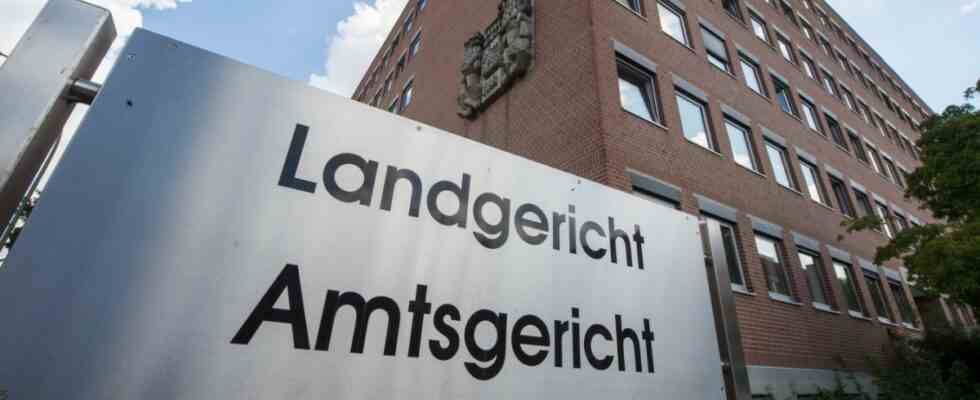“Where will this end?” asked presiding judge Klaus Kurtz in his verdict towards Ernst Hörmann. The Freising climate activist appeared on Wednesday in the Landshut district court in the hope of obtaining an acquittal for himself. In March of last year, as part of a “last generation” campaign, he stuck posters on the windows of the Deutsche Bank branch on Untere Hauptstrasse in Freising. These were difficult to remove, so that Hörmann was sentenced to a total fine of 800 euros for damage to property at the Freising district court. The fifth criminal chamber reduced this amount to 400 euros.
Hörmann relies on the paragraph of “justifying emergency” in his actions. He justified the alleged damage to the bank building by wanting to avert disaster from humanity: namely a possible destruction of civilization through climate change. In his view, Deutsche Bank plays a significant role in this by providing financial support for the exploitation of fossil fuels.
Hörmann was aware that this action could bring him into conflict with the law. “But conventional vigils didn’t help,” he said, explaining his actions. The economy does not want to leave its destructive path and in the long run will plunge humanity into ruin, he explains his actions. Guided by his conscience, the 72-year-old defended his actions and decided to intervene.
As in Freising, Hörmann confessed. A witness, another activist who was involved in the action on a market Saturday, described the joint action. The two of them stuck the posters to the window with flour paste. Hörmann tested its composition at home. It should be easy to detach so that no damage occurs to the windows. Everything had worked out perfectly at home.
It didn’t take long for the police to appear in front of the bank branch that Saturday. A police officer called as a witness said the patrol had offered Hörmann to give one last speech. After half an hour he should then remove the posters. The climate activist did not respond. He left, saying he had made the flour glue himself. Police and an employee of the building yard then had a lot of trouble removing the posters. Hörmann then received a bill of 139 euros, which he also paid.
The motive is noble, but that does not justify a crime
Opinions differed on how this should be punished. Both Hörmann and the public prosecutor appealed against the Freising judgment. The latter would have liked to have given the climate activist a higher penalty. The defendant’s legal counsel, also from the ranks of the “last generation”, saw a “justified state of emergency” and therefore pleaded for acquittal.
In his verdict, presiding judge Klaus Kurtz acknowledged the noble motives of the climate activist. However, the court found it less honorable that Hörmann had started violating the law simply because the previous measures had not brought about the desired response. Although there is freedom of expression in Germany, the border to criminal offenses must not be crossed.
They weren’t little slips of paper, but “huge Oschis”
The judge said that a bank branch is also worth protecting. Hörmann does not have the right to stick them on. On top of that, because the posters were not “little notes”, but “huge Oschis”. The court also takes the view that the action was long-term. It should therefore take place on a Saturday because the branch was closed for two days. In theory, the posters could have been hung for two days before they were removed. Time enough to attract attention.
Such actions are not suitable to combat climate change, said Kurtz. It is worrying that Hörmann tried to attract attention with such a “lighthouse project”. “That’s worrying. Where does that end?”

